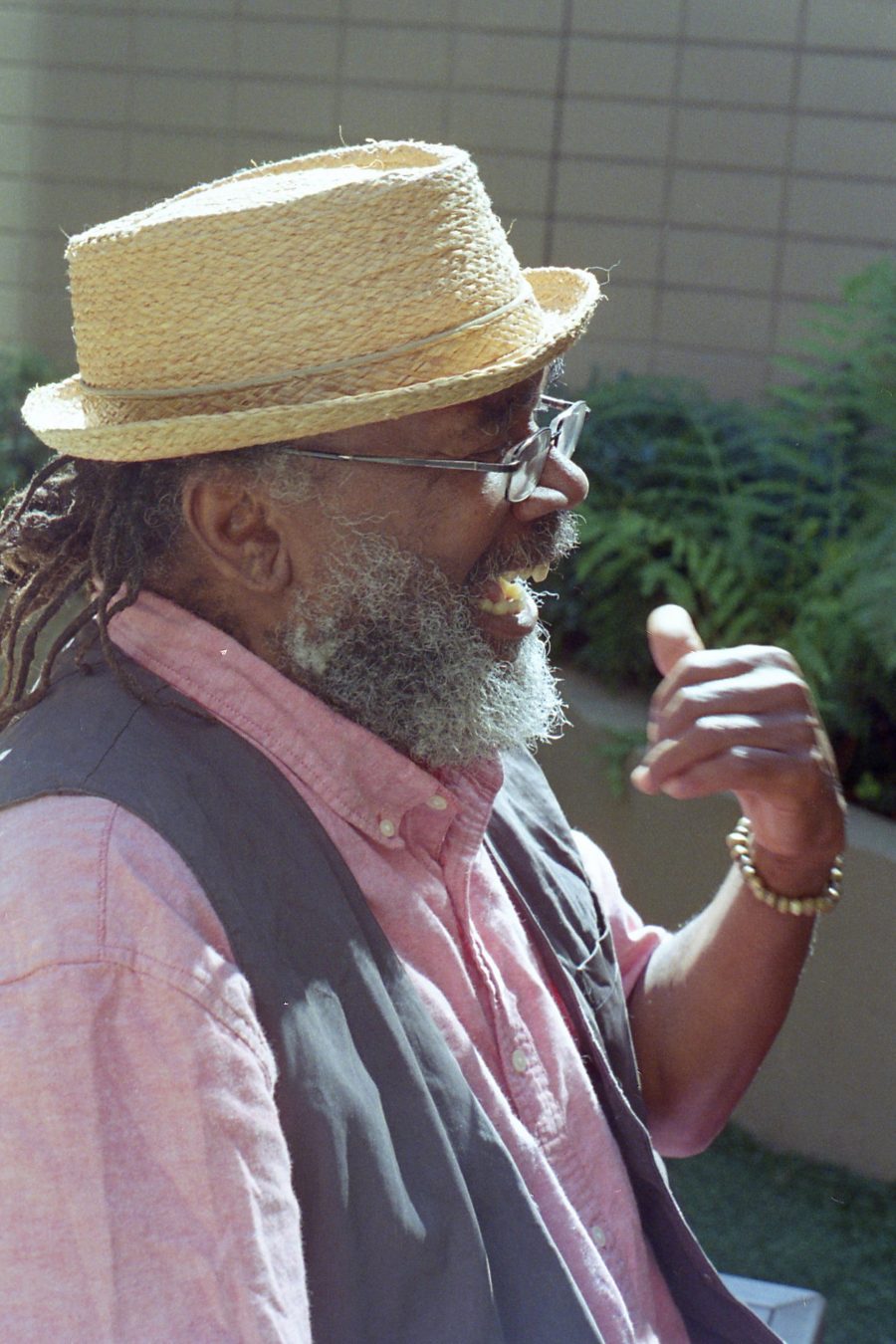Five minutes. That’s all it takes to know how intelligent and passionate Arthur Flowers is. But you surely will want to spend a whole lot longer with him.
Flowers is animated, lively, articulate, inquisitive. So, you must be prepared to listen, and to talk. It is an exhilarating thing, sitting down with this man.
Flowers teaches creative writing at Syracuse University. “It has the flexibility I need,” he says, seated in the Forage courtyard in The Listel Hotel. “I started out thinking I wanted to be a great novelist. But a mentor friend of mine told me early on, ‘No, Art, what you want is to be a great writer.’” He relishes the memory, clearly, and then goes on to explain the importance of the main mentor of his life, John Killens. “He had a requirement for any teaching job he took. That was: his classes had to be open to the community,” says Flowers. “If you could prove to him you were serious about your writing, he’d let you in. This was back in a time when young black writers really did not have a lot of ways to become professional writers. And he taught me a most valuable lesson, something I now pass on to my students: ‘Politics cannot carry a novel.’ Invaluable. Creative non-fiction allows me to get the politics in just fine, but it is not what carries the work.”
Flowers also has a blog called rootwork the rootsblog: a cyberhoodoo webspace; it is a virtually unmediated contemplation of the daily challenges of writing, and of editing one’s own work. “I remember reading about the autobiography of Frederick Douglass, how some people thought the fact that there was no record of him struggling to write the book somehow indicated he may not have written it himself,” says Flowers, who visited Vancouver to perform at the 2017 Indian Summer Festival. “That I consider to be nonsense, but my blog is intended to be an honest look at how writing is usually a struggle.” Flowers likes to “let the work get cold. It is major part of my creative process. Let it get cold, then go back in and whittle away. At that point, you are not in full creative mode. You need to know when to do what.” He was recently at an event called Disquiet, in Portugal, where the editing process was a focus. He adds, gleefully, that “the thing was run by a former student of mine. When I knew him, he was a slacker! Now, he’s a gatekeeper. Good for him.”
Flowers is a native of Memphis (“Elvis is my man”), and as such has had a long and abiding love of music. At some point in his career, he began accompanying himself on a blues harp at his literary readings. “One night, a poet asked me to accompany him, as well, and things really moved from there,” he recalls. “I started to practice, to try to get better. As a writer accompanying himself, I was near the top of the food chain. As a musician only, I was way at the bottom.” These days, he performs spoken word and music, and almost never does strictly oral readings.
Flowers has written the novels Another Good Loving Blues and De Mojo Blues, as well as a children’s book, and something he calls a manifesto, Mojo Rising: Confessions of a 21st Century Conjureman. His most recent work is graphic non-fiction, delving deeper into Martin Luther King than the generally accepted treatments have it. “I experienced Mr. King and the movement firsthand, and I wanted to contribute something to the legacy,” Flowers says. It is called I See the Promised Land. There is a novel in progress, and a non-fiction work, The Hoodoo Book of Flowers, “which is full of wisdom tales,” he says. “And not just tales from my own, African-American and African cultures, but I discovered and love Sufi tales, and Hasidic tales, too.”
Flowers is bursting with energy, and his appetite for teaching is manifest in almost every sentence he utters. “At Syracuse, there is a thing called First-Year Forum. Freshmen are paired with a faculty member to help them transition well into college life,” Flowers says. “These kids are not jaded at all; they are so excited to be there, but are naive. You know, never tried Indian food, don’t know what a falafel is! At the end of the year, I ask them for one assignment; write your own obituary. They usually list the achievements they hope to have, their lifelong successes, which is fine. But then I tell them, ‘Listen, you will remember Professor Flowers, because I am here to tell you that life can be a little rough. You have to be ready for that.’”
That, in a way, describes Flowers. He is overwhelmingly positive, but road-weary too; artistic, but not afraid to grind it out when the work seems slow or stalled; a writer who always wants to try new things, and who leaves with a quote from Proust, whom he is now reading for the first time. “I expected not to really like it, but it turns out, I really love his style,” Flowers says. “And he has a wonderful sentence that struck a chord with me, which I like to spread around whenever I can: [to paraphrase,] ‘You don’t need new experiences, you need new eyes.’” A laugh, a last taste of water, and then on into the day goes Flowers, with Proust and Elvis bouncing in his mind.










